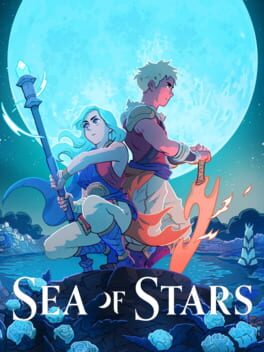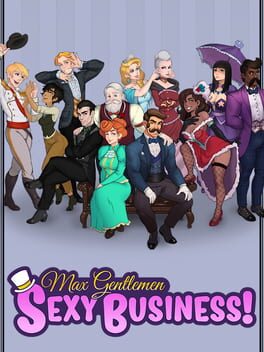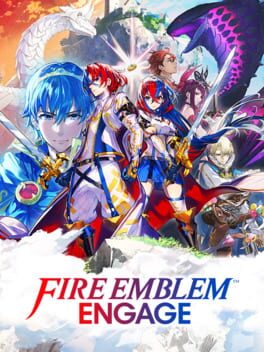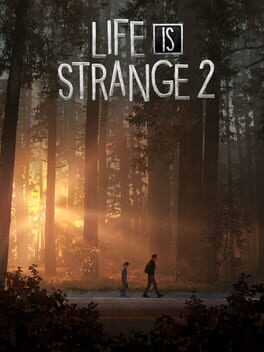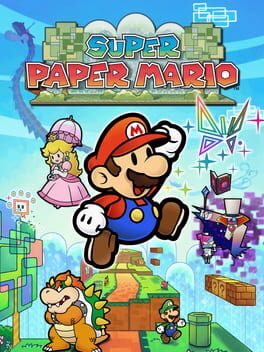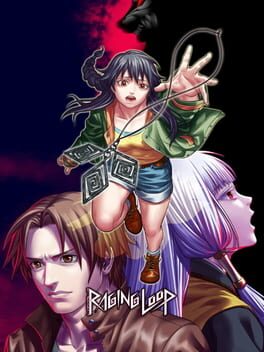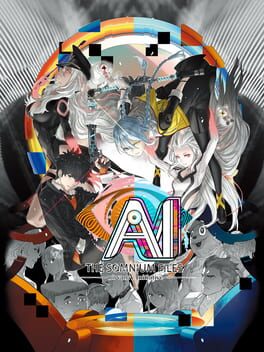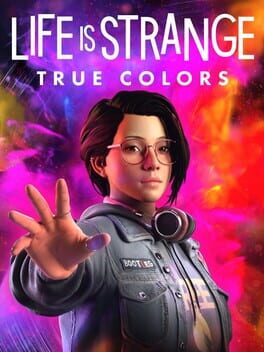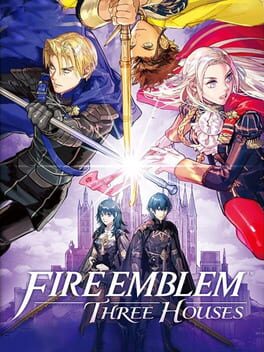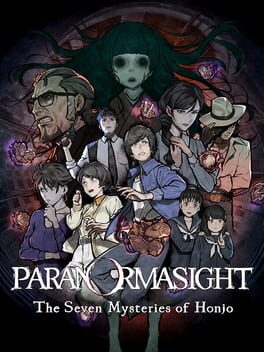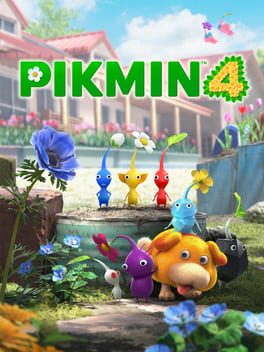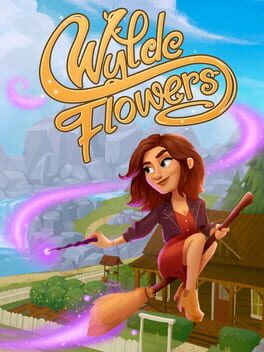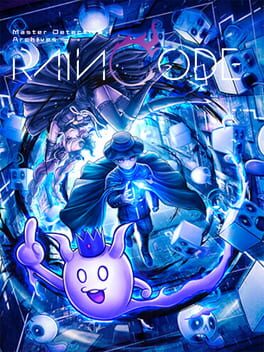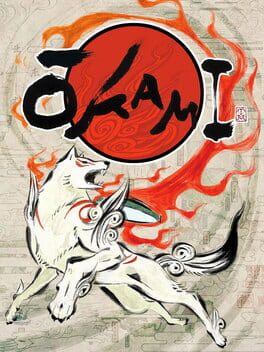Keyfinder
2023
This was a game I was initially extremely interested in. It had the appearance and call-backs to great JRPG classics, but I found myself feeling empty with the experience.
For the positives, the battles have a good pace, with satisfying challenge and puzzles to keep the player engaged. However, this quickly becomes problematic, as the you very quickly get all the tools each character has to use, with the player having to reuse the same strategies over and over for the best results. I found myself actively trying to avoid battle due to how formulaic they became.
One aspect I see as working well is the stage design and platforming elements. The player consistently gets new tools to improve how they approach puzzles, which, for me, were fun to work through and may the world feel like an adventure.
The biggest and most glaring issue with the game is the story and characters. Characters either have one trait or no traits. For example, the two leads have such little depth together they would make for one underwritten single character. This led to giving far too much attention to the deuteragonist, who steals the spotlight and hijacks scenes that could be used to further the leads rather starving significance in the story. This makes him the best character and the most divisive character.
Plot-wise, I struggled to complete how much I did, as it would start and I was so uninterested I would nearly fall asleep. The stakes could never be lower, with the characters and the world itself never caring about any of the possible threats. For instance, a great evil has just been released and the characters decide to spend weeks helping to rebuild a town for some refugees. While nice, it is a sharp departure to how characters should respond to a threat.
Ultimately, the reason I could not complete the game is the tedium. All battles are the same, the characters have nothing interesting to say, the plot is not doing anything, and the world does not feel lived in, rather a beautiful set piece to go through.
For the positives, the battles have a good pace, with satisfying challenge and puzzles to keep the player engaged. However, this quickly becomes problematic, as the you very quickly get all the tools each character has to use, with the player having to reuse the same strategies over and over for the best results. I found myself actively trying to avoid battle due to how formulaic they became.
One aspect I see as working well is the stage design and platforming elements. The player consistently gets new tools to improve how they approach puzzles, which, for me, were fun to work through and may the world feel like an adventure.
The biggest and most glaring issue with the game is the story and characters. Characters either have one trait or no traits. For example, the two leads have such little depth together they would make for one underwritten single character. This led to giving far too much attention to the deuteragonist, who steals the spotlight and hijacks scenes that could be used to further the leads rather starving significance in the story. This makes him the best character and the most divisive character.
Plot-wise, I struggled to complete how much I did, as it would start and I was so uninterested I would nearly fall asleep. The stakes could never be lower, with the characters and the world itself never caring about any of the possible threats. For instance, a great evil has just been released and the characters decide to spend weeks helping to rebuild a town for some refugees. While nice, it is a sharp departure to how characters should respond to a threat.
Ultimately, the reason I could not complete the game is the tedium. All battles are the same, the characters have nothing interesting to say, the plot is not doing anything, and the world does not feel lived in, rather a beautiful set piece to go through.
This is porn. This is fun, engaging porn that does not feel as though it is desperately trying to gross you out and get you off simultaneously. Nudity and sex is used in this game as a farce, to which it helps to make the situation wonderfully absurd and engrossing.
Game-play wise, this is city builder with the goal to make enough money and destroy your rivals for capitalistic gain. The gameplay is simple and enjoyable, with no real mechanics that ruin the experience, rather add a tediousness that prolongs the game, but for me, it helped to allow more time for the date activities. Dating is the main draw of the game, where you get to meet and potentially sex your business partners. Your partners are nuts, but they fit into this wacky world where debauchery is an normal as breathing.
For those who do not like porn, the game presents options to play SFW, but doing so, at least to me, somewhat defeats the purpose of this unhinged game.
Negatively, the game is not endless and you will always reach a point where it is too impractical to go on, which can sully the experience for those seeking to get everything without starting from scratch.
All in all, a goofy game that is addictive to play and titillating to look at, if that's your thing.
Game-play wise, this is city builder with the goal to make enough money and destroy your rivals for capitalistic gain. The gameplay is simple and enjoyable, with no real mechanics that ruin the experience, rather add a tediousness that prolongs the game, but for me, it helped to allow more time for the date activities. Dating is the main draw of the game, where you get to meet and potentially sex your business partners. Your partners are nuts, but they fit into this wacky world where debauchery is an normal as breathing.
For those who do not like porn, the game presents options to play SFW, but doing so, at least to me, somewhat defeats the purpose of this unhinged game.
Negatively, the game is not endless and you will always reach a point where it is too impractical to go on, which can sully the experience for those seeking to get everything without starting from scratch.
All in all, a goofy game that is addictive to play and titillating to look at, if that's your thing.
2023
Probably the most enjoyable terrible experience I have ever had. For the positive, it is without competition the best-looking and feeling Fire Emblem game in the series. The animations are fluid and beautiful and the environments nice looking and dynamic. As well, some of the best gameplay in the series, with fantastic strategy and Emblems being very enjoyable additions to help spice up gameplay.
On the negative side, is the boring, cringy, poorly written, unengaging (heh), and trite plot and characters. On the appearance side, I feel most of the characters tend to be overdesigned being cartoonish and distracting. Compare Celine in a ball gown and floor-length hair to Diamont in full armor to see where it seems outlandish these people couple exist in the same world. That is a great issue, where female characters tend to run generically cute while male characters have more developed designs. Personality-wise, the characters are a step back from 3 Houses, as they lack the same level of depth, which goes back to how bland the world in the game is.
The world is essentially biomes for different level dynamics, with Brodia being the clear loser, as it has no defining characteristics while the others at least have weather conditions. The intent was to make the world feel like an adventure, to which it feels more like a Disney World ride, where you see a pretty, but interesting place and then move to the next one.
Plot wise the game might as well not have one. The game retreads a lot of what was used in Fates, but lacks even the attempt of those games. The story is generic and can be more satisfying to skip than it is to watch. Stakes seem low and never get higher, especially considering The Four Punching Bags and how they dominate the story and gameplay while being boring and reductive to see.
All in all, play for the gameplay and skip the rest. Developing strategy is satisfying and replayable, but with the lack of customization, mileage may vary. Characters are boring, visually off-putting, and have vast gameplay differences that make it difficult to justify using some over much better ones.
On the negative side, is the boring, cringy, poorly written, unengaging (heh), and trite plot and characters. On the appearance side, I feel most of the characters tend to be overdesigned being cartoonish and distracting. Compare Celine in a ball gown and floor-length hair to Diamont in full armor to see where it seems outlandish these people couple exist in the same world. That is a great issue, where female characters tend to run generically cute while male characters have more developed designs. Personality-wise, the characters are a step back from 3 Houses, as they lack the same level of depth, which goes back to how bland the world in the game is.
The world is essentially biomes for different level dynamics, with Brodia being the clear loser, as it has no defining characteristics while the others at least have weather conditions. The intent was to make the world feel like an adventure, to which it feels more like a Disney World ride, where you see a pretty, but interesting place and then move to the next one.
Plot wise the game might as well not have one. The game retreads a lot of what was used in Fates, but lacks even the attempt of those games. The story is generic and can be more satisfying to skip than it is to watch. Stakes seem low and never get higher, especially considering The Four Punching Bags and how they dominate the story and gameplay while being boring and reductive to see.
All in all, play for the gameplay and skip the rest. Developing strategy is satisfying and replayable, but with the lack of customization, mileage may vary. Characters are boring, visually off-putting, and have vast gameplay differences that make it difficult to justify using some over much better ones.
2018
Life is Strange 2 is the Super Mario Bros. 2 of the series. Good for what it is, but very different in ways that does not feel like Life is Strange. The first game made such a strong impression that it was always going to be difficult to follow up the first game, and in my opinion, they did a good job.
The major theme of the game is in how the player values the brotherly relationship, if you act moral, Daniel does too, as well as the opposite. The real theme of the game is that it only takes one thing to derail your entire life never to recover. This is a tragedy in nearly every way, no matter the decision that gets made, something terrible comes right after it. It is an exercise in how many terrible things you can witness and continue to keep going.
Gameplay-wise, there is almost no psychic activity, which keeps the gameplay a little more bland than the other games, as you can only influence rather than directly control the events of the game.
All in all, a good sequel that does not seem too related to the first game, nor the later games. This may be due to having a male protagonist or in general different themes that are more broadly political rather than simply moralistic. It is still an interesting experience that is worth having if you enjoy these types of games.
On a personal note: this game was a cathartic experience for me. At the time of playing this, I had just left a job I loved due to stress and had no idea what I was doing with my life, but this game did help me to feel things and process it positively, so for that, I will always be fond of my experience with it.
The major theme of the game is in how the player values the brotherly relationship, if you act moral, Daniel does too, as well as the opposite. The real theme of the game is that it only takes one thing to derail your entire life never to recover. This is a tragedy in nearly every way, no matter the decision that gets made, something terrible comes right after it. It is an exercise in how many terrible things you can witness and continue to keep going.
Gameplay-wise, there is almost no psychic activity, which keeps the gameplay a little more bland than the other games, as you can only influence rather than directly control the events of the game.
All in all, a good sequel that does not seem too related to the first game, nor the later games. This may be due to having a male protagonist or in general different themes that are more broadly political rather than simply moralistic. It is still an interesting experience that is worth having if you enjoy these types of games.
On a personal note: this game was a cathartic experience for me. At the time of playing this, I had just left a job I loved due to stress and had no idea what I was doing with my life, but this game did help me to feel things and process it positively, so for that, I will always be fond of my experience with it.
2007
A controversial, but intriguing addition to the Paper Mario series. This was the first step away from the traditional turn-based combat of the first two games into a platformer/RPG hybrid that can be isolating for fans of one genre over the other. The gameplay is fun but lacks impact, platforming is solid but narrows what can be done with level design, basically not good enough to be mainline platformer perfection, but still serviceable. The real star of the show is the story which is shockingly heartfelt and engaging to the player. The game is not afraid to be silly but knows when to dial it back to make story revelations the most impactful. This is likely the darkest and most story-heavy game in the Mario series, and it does not disappoint. I found myself emotional at various points in the game, further helped by a fantastic musical score to punch up the scenes for the most impact.
All in all, it is fun, but lacks the uniqueness of the previous entries. Largely, play for the story, as without it, there is not much to make this game particularly memorable. The story is worth it, especially for those who go in blind.
All in all, it is fun, but lacks the uniqueness of the previous entries. Largely, play for the story, as without it, there is not much to make this game particularly memorable. The story is worth it, especially for those who go in blind.
2015
As a fan of Werewolf-style games, this was a story I found myself enraptured by with a constantly evolving cast and story revelation and twists. The game begins slow with allowing the player to get acquainted to the world as an outsider to the actions before getting them involved in it. As well, much of the game subverts the expectation of the player, especially in how players would likely jump to the conclusion that their actions will be the proper solution when that is quickly proven incorrect.
The pacing is an exercise in removing the player from the player insert character. Haruaki Fusaishi is most certainly not a conventional protagonist, with him spending the majority of the story being both selfish, self-centered, and conniving, but never to the point of being the active villain in the story, which was very surprising to see.
Gameplay-wise, issues for players may arise. The game is almost strictly visual novel, with the only player input being from branching path choices, which will largely be pointless as most lead to game over screens. Mileage may vary for each player, but for me, I was not bothered due to the strength of the mystery and character interactions. Additionally, the game is very wordy and does not have a dubbed option, so while I would have preferred to have had the option, I was able to get through it.
All in all, this is a game best liked by people who can handle a strict visual novel, but quite frankly if it doesn't hook you after the first trial, you'll likely never get hooked. I may be rating it too highly for its faults, but even years after playing it, it still revisits my mind, so the impact was apparent.
The pacing is an exercise in removing the player from the player insert character. Haruaki Fusaishi is most certainly not a conventional protagonist, with him spending the majority of the story being both selfish, self-centered, and conniving, but never to the point of being the active villain in the story, which was very surprising to see.
Gameplay-wise, issues for players may arise. The game is almost strictly visual novel, with the only player input being from branching path choices, which will largely be pointless as most lead to game over screens. Mileage may vary for each player, but for me, I was not bothered due to the strength of the mystery and character interactions. Additionally, the game is very wordy and does not have a dubbed option, so while I would have preferred to have had the option, I was able to get through it.
All in all, this is a game best liked by people who can handle a strict visual novel, but quite frankly if it doesn't hook you after the first trial, you'll likely never get hooked. I may be rating it too highly for its faults, but even years after playing it, it still revisits my mind, so the impact was apparent.
After finishing the first game, my first thought was "I cannot wait for a second game" and when this finally arrived my thought was "it was okay". I would not say the game does anything worse than the previous game, but more so that it does not exceed what was already established beforehand. The major difference is that the game is split between two new protagonists: the previously seen Mizuki and the new Ryuki. The game is primarily established to give more context to Mizuki and it does that in some rather ludicrous ways; without spoilers: almost everything previously learned about her is altered, for better or worse. Ryuki, on the other hand, does not measure up, he is a more serious character, but it leads him to be harder to care about, especially considering how much he was meant to act as the opposite of Date.
Another issue with the cast for this game is that they would routinely drag characters from the previous game to this one, often times just for the cameo, to which they somewhat took time away from establishing the new characters. The new characters are likable and endearing, especially in how they are involved in the overall story of the game.
The plot is significantly less gory, but no less horrific. As well, the structure is fascinating in how it manipulates the player's perspective on events. The overall story and conflict is equally, in my opinion, as the first game, but the path to get there is more tumultuous.
Gameplay-wise, the Somniums continue to be fun, but can be annoying in this early mistakes are almost impossible to recover from, which can be annoying depending on the player.
All in all, a solid sequel with an interesting story, but lacks what the French say "that one thing" to really make the experience impactful at the deepest level.
Another issue with the cast for this game is that they would routinely drag characters from the previous game to this one, often times just for the cameo, to which they somewhat took time away from establishing the new characters. The new characters are likable and endearing, especially in how they are involved in the overall story of the game.
The plot is significantly less gory, but no less horrific. As well, the structure is fascinating in how it manipulates the player's perspective on events. The overall story and conflict is equally, in my opinion, as the first game, but the path to get there is more tumultuous.
Gameplay-wise, the Somniums continue to be fun, but can be annoying in this early mistakes are almost impossible to recover from, which can be annoying depending on the player.
All in all, a solid sequel with an interesting story, but lacks what the French say "that one thing" to really make the experience impactful at the deepest level.
The Life is Strange series is one that will constantly be compared to the first game, as it sets the precedent for how players engage with the rest of the series. True Colors has a lot that is similar to the first game, but with a more positive outlook. Whereas the first game was a tragedy with good scattered throughout, the second game was a tragedy that got worse as it went along, and the third game is a tragedy that gets better and shows the positives of life.
While bad things do happen, the player gets to experience something the other games do not show: healing. The mood is largely nice and does not revel in the misery of its characters allowing them to grow beyond the situation.
Saying all that, it does lead to the game being less impactful than the rest of the series. I played this game far more recently than Life is Strange 1, but remember far more than I do from True Colors.
Gameplay-wise, the game has everything I like it: you get to explore fairly freely, talk to whoever you want, see others develop without your influence, and use empathy to interesting effects. While empathy is the least impactful power in this series, it is used well, just with fairly obvious conclusions that come from choices regarding it.
All in all, a nice departure from the trends of the series that blends tragedy with hope to provide a more light experience than the rest of the series.
While bad things do happen, the player gets to experience something the other games do not show: healing. The mood is largely nice and does not revel in the misery of its characters allowing them to grow beyond the situation.
Saying all that, it does lead to the game being less impactful than the rest of the series. I played this game far more recently than Life is Strange 1, but remember far more than I do from True Colors.
Gameplay-wise, the game has everything I like it: you get to explore fairly freely, talk to whoever you want, see others develop without your influence, and use empathy to interesting effects. While empathy is the least impactful power in this series, it is used well, just with fairly obvious conclusions that come from choices regarding it.
All in all, a nice departure from the trends of the series that blends tragedy with hope to provide a more light experience than the rest of the series.
As a long-time Fire Emblem fan, although admittedly a mediocre player of the games, Fire Emblem: Three House is certainly a game in the series. While that sounds negative, in my experience Fire Emblem struggles to combine good gameplay with good story. 3H falls into the latter category with an engaging story that is nuanced and complex, with many different dimensions to observe it from.
The plot and characters have genuine depth that is often neglected in Fire Emblem games, bringing the best written characters in the series. The plot itself struggles to fully develop the themes of the games and reeks of being rushed and unfinished, especially due to the two of the storyline paths being nearly identical and another being shorter than the other ones. Not to mention Those Who Slither and Add Little to the Plot.
Gameplay is... fine. It functions, it is fun, just not particularly deep. Much of the gameplay is routing enemies with not too much diversion from that. When it does divert from that, the game improves, with more intensive and memorable moments.
While the characters are fun to customize, it does lead them to lose a sense of identity, which somewhat goes against the Fire Emblem character formula. The individual personality and backstory will keep you engaged with them, however.
In conclusion, Fire Emblem: Three Houses is a good direction for Fire Emblem with complex plots, themes, characters, and customization, but doesn't quite stick the landing in many ways, with a seemingly rushed execution and gameplay that can come off mindless due to its lack of variety.
The plot and characters have genuine depth that is often neglected in Fire Emblem games, bringing the best written characters in the series. The plot itself struggles to fully develop the themes of the games and reeks of being rushed and unfinished, especially due to the two of the storyline paths being nearly identical and another being shorter than the other ones. Not to mention Those Who Slither and Add Little to the Plot.
Gameplay is... fine. It functions, it is fun, just not particularly deep. Much of the gameplay is routing enemies with not too much diversion from that. When it does divert from that, the game improves, with more intensive and memorable moments.
While the characters are fun to customize, it does lead them to lose a sense of identity, which somewhat goes against the Fire Emblem character formula. The individual personality and backstory will keep you engaged with them, however.
In conclusion, Fire Emblem: Three Houses is a good direction for Fire Emblem with complex plots, themes, characters, and customization, but doesn't quite stick the landing in many ways, with a seemingly rushed execution and gameplay that can come off mindless due to its lack of variety.
Immediately, I was hooked into the world of this game. Each character felt fleshed out and intriguing, along with their personal reasoning to engage in what is essentially a death game. I enjoyed how the game overlapped and chess-like strategy each of the characters engage with when confronting other "cursed" characters. The game is stylish and visually striking to look at, with nary a moment of boredom on the screen, with dialogues that last long enough to be impactful, but not too long to seem dull.
Without spoilers: I felt the ending was not satisfactory, as it felt like I was waiting for some big confrontation moment, just for it be taken away. I find it intriguing the twist that was utilized, but it still led to a rather quiet ending to what was an engrossing story.
All in all, a great experience, but one that goes with a whimper rather than the bang it deserved.
Without spoilers: I felt the ending was not satisfactory, as it felt like I was waiting for some big confrontation moment, just for it be taken away. I find it intriguing the twist that was utilized, but it still led to a rather quiet ending to what was an engrossing story.
All in all, a great experience, but one that goes with a whimper rather than the bang it deserved.
Bright, colorful, inventive, and enjoyably surprising. Frequently whilst playing I found myself being surprised by whatever Wonder Effects took place, which provided that quick hit of nostalgia-ridden dopamine reminiscent of my childhood.
I played the game with my partner, who is not an active gamer and typically struggles with more complex games, but they were able to understand and enjoy whatever surprises came around the corner. This game came off as introduction-friendly while bringing enough challenge and creativity to keep more experienced players interested.
The only major negative is the boss fights, as many others have mentioned. There are only two bosses, with one repeated multiple times with almost identical strategies throughout. Additionally, the final boss lacks a challenge even for novice players, leaving it to be more tedious than rewarding.
All in all, a fantastic game with creative ideas that both the experienced and unexperienced will enjoy, as well with polished gameplay that is satisfying to play and experiment with.
I played the game with my partner, who is not an active gamer and typically struggles with more complex games, but they were able to understand and enjoy whatever surprises came around the corner. This game came off as introduction-friendly while bringing enough challenge and creativity to keep more experienced players interested.
The only major negative is the boss fights, as many others have mentioned. There are only two bosses, with one repeated multiple times with almost identical strategies throughout. Additionally, the final boss lacks a challenge even for novice players, leaving it to be more tedious than rewarding.
All in all, a fantastic game with creative ideas that both the experienced and unexperienced will enjoy, as well with polished gameplay that is satisfying to play and experiment with.
2023
This was my first (and probably only, I am rather intimidated by the other games) Pikmin game and it did not disappoint. It is a game of satisfying feelings. The feeling of collecting useless junk and adding meaning to it, the feeling of caring for pixels because they made sad sounds when they die, the feeling of euphoria when a dandori goes just the way you wanted it to. This was a surprising feel-good game that I could not take my hands off and it seeps good vibes out of its core.
All in all, don't worry, just dandori.
All in all, don't worry, just dandori.
2022
Genuinely a surprising experience. My first impression of the game came from its rather "mobile" appearance, bearing a resemblance to cheap mobile games that lack a touch of passion. What the game does on the contrary is amplify the best parts of farming sims, with likable characters, a story that actually tries, and providing the players with an obvious sense of progression that is satisfying.
While this is a farming game, it operates more as a crafting game, with crops being used to help produce goods that are useful for other recipes. Another thing that separates it from its contemporaries is the use of magic in the game, which provides useful buffs and helps to act as landmarks to further plot progression.
The story has actual stakes as well, with the town becoming fearful of each other leading to conflicts that reveal deeper complexities, leaving the game to not be as mindlessly cheerful as other sim games can be. An issue is the lack of a cohesive "villain revealed" moment. While the player knows their is someone evil, the identity is revealed near the end of the first year with little fanfare and is resolved very shortly thereafter.
While the game has a fantastic sense of progression for the first year, the second year adds little to explore. By that point, relationships are likely maxed out, collectibles collected, and major plot points completed. There is not much to keep you playing afterward, but it never becomes stale, rather uneventful.
In conclusion, even with its faults, I found myself utterly addicted to the game playing it at any given opportunity and growing to love this fictional world and characters. The faults are not so grand to get in the way of what turned out to be a surprisingly excellent experience.
While this is a farming game, it operates more as a crafting game, with crops being used to help produce goods that are useful for other recipes. Another thing that separates it from its contemporaries is the use of magic in the game, which provides useful buffs and helps to act as landmarks to further plot progression.
The story has actual stakes as well, with the town becoming fearful of each other leading to conflicts that reveal deeper complexities, leaving the game to not be as mindlessly cheerful as other sim games can be. An issue is the lack of a cohesive "villain revealed" moment. While the player knows their is someone evil, the identity is revealed near the end of the first year with little fanfare and is resolved very shortly thereafter.
While the game has a fantastic sense of progression for the first year, the second year adds little to explore. By that point, relationships are likely maxed out, collectibles collected, and major plot points completed. There is not much to keep you playing afterward, but it never becomes stale, rather uneventful.
In conclusion, even with its faults, I found myself utterly addicted to the game playing it at any given opportunity and growing to love this fictional world and characters. The faults are not so grand to get in the way of what turned out to be a surprisingly excellent experience.
As someone who has never played Dangan Ronpa, but has seen others play it (where I can skip the cringe and boring), this did not endear me to these types of games. I love mystery novels and this provided an adequate experience.
I did not find myself too invested in any of the plots of the cases, as I was able to figure out the culprits, simply due to how few characters there were and how easy they were to eliminate. Most of the twists I had formulated long before they were revealed, with only seldom being surprised at an event. This was enjoyable, but not fully engaging and did not leave me thinking the same way something like Ace Attorney does.
Character-wise is where I have issues, as the majority of the side characters range from okay to intolerable, with Shinigami doing so between dialogue boxes. I found myself struggling to care about the cases when the tone fluctuated so unevenly, if something was serious there would be too many times a silly, goofy thing would happen that would break immersion.
Atmosphere-wise, this game is stunning. It looks gorgeous and invites so much awe at the sound of the rain, the neon in the dark, the sense of danger, and the collective grief that comes through from the state of the city.
Gameplay is so-so, it works but is just a movable visual novel, which I do enjoy, it helps to keep the player attentive and does not bog down the player with seemingly endless text. I hope to never see a game of hangman again; it ruins the immersion of the game, it is stupidly complicated, and never seems beneficial to play.
In conclusion, the game is enjoyable, but not particularly memorable in story or character. I would play a sequel, which seems to be implied by the ending, but fine-tuning the mysteries and how the gameplay intersects could turn this series into something special.
I did not find myself too invested in any of the plots of the cases, as I was able to figure out the culprits, simply due to how few characters there were and how easy they were to eliminate. Most of the twists I had formulated long before they were revealed, with only seldom being surprised at an event. This was enjoyable, but not fully engaging and did not leave me thinking the same way something like Ace Attorney does.
Character-wise is where I have issues, as the majority of the side characters range from okay to intolerable, with Shinigami doing so between dialogue boxes. I found myself struggling to care about the cases when the tone fluctuated so unevenly, if something was serious there would be too many times a silly, goofy thing would happen that would break immersion.
Atmosphere-wise, this game is stunning. It looks gorgeous and invites so much awe at the sound of the rain, the neon in the dark, the sense of danger, and the collective grief that comes through from the state of the city.
Gameplay is so-so, it works but is just a movable visual novel, which I do enjoy, it helps to keep the player attentive and does not bog down the player with seemingly endless text. I hope to never see a game of hangman again; it ruins the immersion of the game, it is stupidly complicated, and never seems beneficial to play.
In conclusion, the game is enjoyable, but not particularly memorable in story or character. I would play a sequel, which seems to be implied by the ending, but fine-tuning the mysteries and how the gameplay intersects could turn this series into something special.
2006
Having played on the Wii, this feels the most natural method, with the player drawing brush strokes for the best play experience. A culture-rich comedy with strong combat and beautiful art. Even now, the stylistic nature of the game lends it to remain beautiful.
To keep it short, an experience that is not one to miss, being one of this reviewers most pivotal experiences in video games.
To keep it short, an experience that is not one to miss, being one of this reviewers most pivotal experiences in video games.
